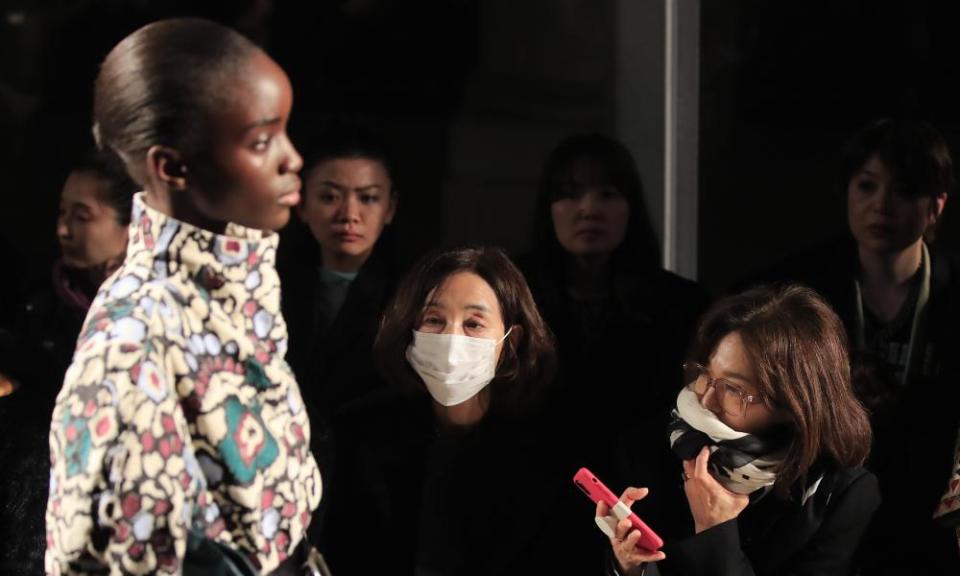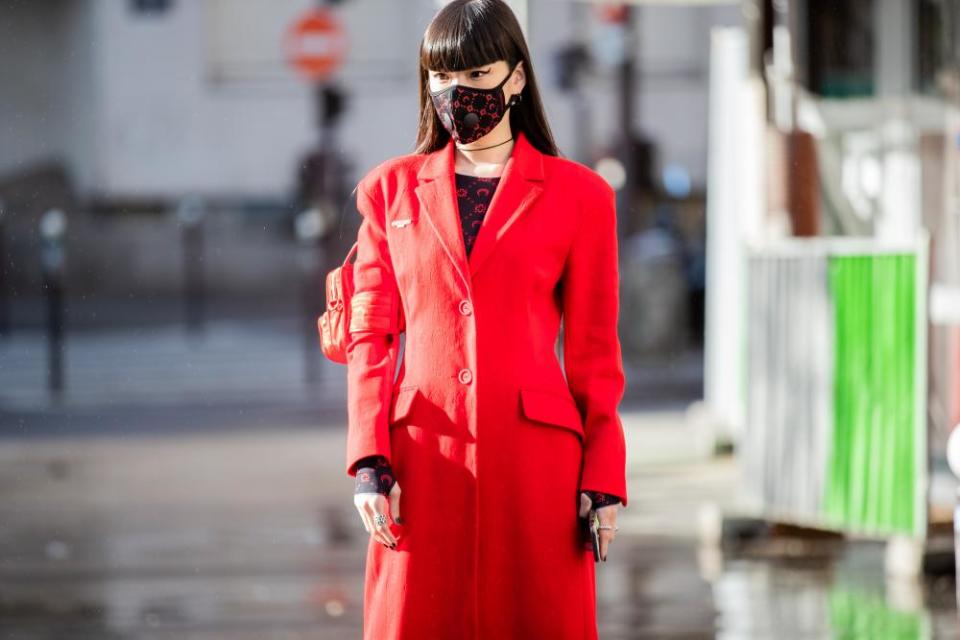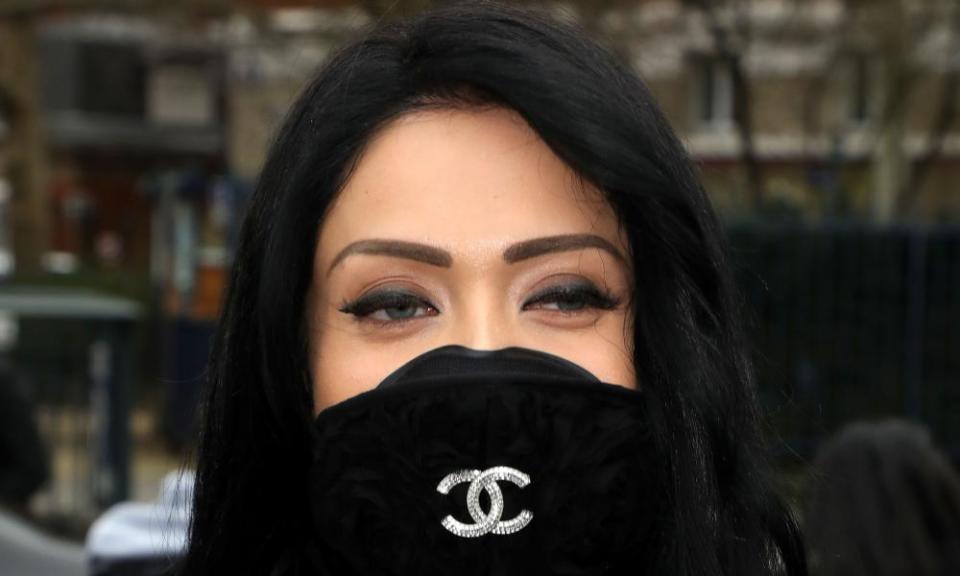Cancelled shows and designer masks: Paris fashion week wrestles with coronavirus

The trend sweeping Paris fashion week, which looks poised to catch on globally, is not a hemline or a handbag but a new form of greeting: the upper-arm squeeze.
In the three weeks since the global carousel of fashion weeks began in New York, air kissing has fallen out of favour as anxiety over coronavirus has risen. In Paris, where the final stretch of catwalk shows runs until Tuesday, a brief but warm squeeze of the bicep – less formal than a handshake and yet without skin-to-skin contact, a move borrowed from the campaign trail playbook of Bill Clinton and Barack Obama – has established itself as the in-vogue “hello”.
As for the accessory of the season, there is no contest. The £54 Airinum Urban Air Mask 2.0, in which Gwyneth Paltrow posted a jokey Instagram selfie from her airplane seat to France this week, is sold out worldwide in onyx black (Paltrow’s choice), pearl pink and quartz grey.

Violet tulle face masks hit the catwalk at the Maison Margiela show, and glittery balaclava-styled masks were seen at Marine Serre. (Months ahead of the zeitgeist, Serre was dressing models in masks back in 2019. Her aesthetic has been nicknamed “athleisure for the post-apocalypse”.) Showgoers have been offered masks to wear at several shows in recent days, including at Dries Van Noten and Paco Rabanne.
Five Chinese brands – Shiatzy Chen, Masha Ma, Uma Wang, Calvin Luo and Maison Mai – have cancelled their Paris shows. A cocktail party for the finalists of the prestigious LVMH prize, usually one of the most packed see-and-be-seen-at events of the fashion week, was called off, as was a karaoke party hosted by Net-a-Porter, and a party at the Ritz for the New York brand LoveShackFancy.

However, most major events are still scheduled to go ahead, including the Louis Vuitton show, which holds the final slot on Tuesday evening. Michael Burke, the brand’s chief executive, confirmed to Womenswear Daily that the show would proceed as planned, saying “the Chinese aren’t coming, but everyone else is”. Rumours of a cancellation of Tuesday’s show by Miu Miu, whose team is based in Milan, have been dismissed by the brand.
While some show attendees are paring back their schedules to essential meetings only, for others it is business as usual. The city’s latest fashionable restaurant, Les Jardins du Presbourg, remains packed each evening, and tables are still impossible to come by at the longtime fashion favourite Caviar Kaspia, where Rihanna’s go-to late supper of a baked potato with sour cream and caviar costs €98.
Fashion reflects the world we live in, as Coco Chanel said, and the inconsistency of response within the fashion industry to the escalating threat of the epidemic holds up a mirror to confusion apparent all over the planet, as governments and authorities struggle to align coherent strategies to deal with an unpredictable and rapidly evolving problem.

Coronavirus has hit fashion from multiple angles. Having first appeared in China, whose population make up about 40% of customers for the luxury fashion houses, last week’s Milan spike in coronavirus cases coincided with Milan fashion week.
Giorgio Armani cancelled invitations to his catwalk show with less than 24 hours’ notice, staging the event to empty seats and instructing guests to stay home and watch the live stream from their hotel rooms. On the same day, however, the Dolce and Gabbana show, and a live press conference to announce Raf Simons joining forces with Miuccia Prada, went ahead in Milan.
In China, the closure of shops, cancellation of social events and low national mood are decimating profits. The international outbreak and consequent slowdown in tourism also spells bad news for an industry in which 40% of luxury sales are to international travellers.
A report this week by Bernstein and Boston Consulting Group estimates the cost to the worldwide luxury industry in 2020 could be $43bn in sales. Fashion weeks in Beijing and Shanghai scheduled for March have been cancelled.
Nor is the impact of coronavirus limited to designer fashion. China is the world’s biggest garment producer, and with factories closed and supply chains cut, retailers and wholesalers of high street fashion, supermarket school uniform ranges and sportswear brands are concerned that orders will not be fulfilled in time to meet shop-floor demand. For the wider fashion industry, the impact of coronavirus may only just be beginning.
